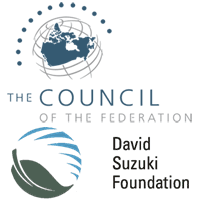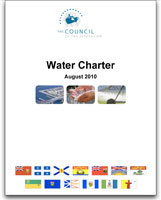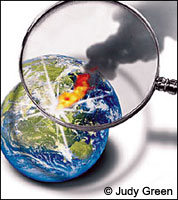
News |
- Celebrate Climate Solutions 10/10/10
- Manitoba Apologizes to Sayisi Dene
- Climate Change Not A Priority to COF
- Premiers Endorse Water Charter
- Alberta Grizzlies Listed as Threatened
- 50 Congressmen Warn Against Pipeline
- Tar Sands Database Released
- Skeeter Struggle Swarms to Manitoba
- Study Shows World Hotter than Ever!
- Zebra Mussels Invade Manitoba
- UN Declares Water a Human Right
- First Nations Demand Canada Protect Woodland Caribou
| Celebrate Climate Solutions 10/10/10 | 16 August 10 |
 Climate Action Network and 350.org are teaming up with communities and organizations across the planet to organize a global work party on October 10, 2010 (10/10/10). The aim is to have the biggest day of practical action to cut carbon the world has ever seen. Climate Action Network and 350.org are teaming up with communities and organizations across the planet to organize a global work party on October 10, 2010 (10/10/10). The aim is to have the biggest day of practical action to cut carbon the world has ever seen.The concept is simple: people from all over the world will get together in their communities with friends, family, neighbors, etc. and dedicate themselves to taking actions to cut carbon emissions. Examples of actions include installing solar panels, digging gardens, and laying out bicycle paths. Participants are also encouraged to celebrate with music, food, dancing or community shows. Through the 350.org website people can view the “Map of Actions” to find a work party in their area. People are also encouraged to start work parties in their communities, if none are already planned. Remember to register it on the 350.org website. If you register early, 350.org will provide you with resources and support that can help along the way, and connect you with supporters in your area who might be able to lend a hand. View 350.org Map of ActionsView 350.org 10/10/10 Event Registration View Climate Action Network Canada (CAN-RAC) website Source: 350.org |
|
 Print version Print version |
Top |
| Manitoba Apologizes to Sayisi Dene | 11 August 10 |
 The Manitoba government apologized for its role in the forced relocation of the Sayisi Dene in the 1950s. The apology was made at a ceremony in Churchill August 3rd, 2010 by Northern Affairs Minister Eric Robinson to Sayisi Dene Chief Jimmy Thorassie and Churchill Mayor Michael Spence. The Manitoba government apologized for its role in the forced relocation of the Sayisi Dene in the 1950s. The apology was made at a ceremony in Churchill August 3rd, 2010 by Northern Affairs Minister Eric Robinson to Sayisi Dene Chief Jimmy Thorassie and Churchill Mayor Michael Spence.The relocation, now considered an abject failure, saw hundreds of people moved to Churchill from their traditional homes in northern Manitoba. In a release, the province states the decision to relocate the Dene community at Duck Lake prior to 1956 was in part due to Manitoba wildlife officials who stated the traditional hunting practices of the Dene contributed to a perceived decline of area caribou herds. After relocation, it was determined the caribou herd the Sayisi Dene had relied upon for generations was in fact healthy. In less than two decades, nearly one-third of the Sayisi Dene died as a result of illness, violence, poverty and racism experienced on the outskirts of Churchill. The forced relocation of the Sayisi Dene was documented in the reports of the Manitoba's 1991 Aboriginal Justice Inquiry and Canada's 1996 Royal Commission on Aboriginal Peoples. An apology and compensation were recommended "This is an important step on the path to reconciliation and healing," says Chief Thorassie. "We have a responsibility to work together to build the future we want for our children despite a legacy of hurt born of past government mistakes." Manitoba has proposed to provide more than 13,000 acres of Crown land, separate from any treaty land entitlement, to help address the effects of relocation. The Sayisi Dene were moved to Tadoule Lake in 1973 at the request of community. View August 3, 2010 Government of Manitoba press releaseView August 3, 2010 Winnipeg Free Press article View August 4, 2010 Winnipeg Free Press article View August 3, 2010 CBC News article Source: Winnipeg Free Press, Government of Manitoba |
|
 Print version Print version |
Top |
| Climate Change Not A Priority to COF | 11 August 10 |
 Canada's provincial and territorial leaders met in Winnipeg for Council of the Federation (COF) session August 4-6, 2010. Climate Action Network Canada (CAN-RAC) organizations were in Winnipeg and released a brief outlining: the top five provincial actions and commitments, the five most misguided provincial actions, and the top five priorities to tackle climate change. Canada's provincial and territorial leaders met in Winnipeg for Council of the Federation (COF) session August 4-6, 2010. Climate Action Network Canada (CAN-RAC) organizations were in Winnipeg and released a brief outlining: the top five provincial actions and commitments, the five most misguided provincial actions, and the top five priorities to tackle climate change."This brief shows that provinces can make significant progress on climate action even in the absence of federal leadership," said David Suzuki Foundation climate change policy analyst Dale Marshall, adding "Premiers need to keep their promise to make climate change a central agenda item at their meetings." Climate Action Network Canada (CAN-RAC) is calling on premiers to create a climate-change secretariat to better co-ordinate policies and climate actions among the provinces. "Despite promising initiatives by various provinces and territories, the lack of progress on the climate change file sends some pretty worrisome signals in terms of provinces and territories' ability to tackle this critically important issue together. Is the Council of the Federation condemned to replicate Ottawa's inability or unwillingness to act on climate change?" asked Equiterre co-founder Steven Guilbeault at the closing of the meeting. "Each jurisdiction has their own plan to deal with climate change," Manitoba Premier Greg Selinger said at the wrap-up of the conference. "We're comfortable with a diversity of approaches which get results." View August 5, 2010 David Suzuki Foundation brief (PDF)View August 5, 2010 Rabble.ca article View August 5, 2010 & August 6, 2010 Climate Action Network news release View August 5, 2010 & August 6, 2010 Canadian Press article View August 5, 2010 & August 8, 2010 Calgary Herald article View August 5, 2010 & August 6, 2010 & August 7, 2010 Winnipeg Free Press article View more information on Manitoba Wildlands' Climate Change section Source: Climate Action Network |
|
 Print version Print version |
Top |
| Premiers Endorse Water Charter | 11 August 10 |
 The 2010 annual meeting of Canada's Premiers (Council of the Federation) held in Winnipeg August 4-6 endorsed a new Water Charter for Canada. Premiers agree to take timely measures, and to work together to: The 2010 annual meeting of Canada's Premiers (Council of the Federation) held in Winnipeg August 4-6 endorsed a new Water Charter for Canada. Premiers agree to take timely measures, and to work together to:
"The Premiers' new Canada Water Charter appears to be an important collaboration for Canada's future water security. Canadians are highly concerned about our waters in the face of climate change and this Charter could be a step in addressing the challenges we are going to increasingly have to confront. The premiers need to be transparent while dedicating staff to a workplan with annual reports, for Canada's new Water Charter," said Gaile Whelan-Enns, Director of Manitoba Wildlands. View August 2010 Council of the Federation, Water Charter (PDF)View August 6, 2010 Council of the Federation press release (PDF) View June 15, 2010 Government of B.C. press release View July 30, 2010 Manitoba Wildlands article View August 8, 2010 Digital Journal article View August 3, 2010 Vancouver Sun article View more information on Manitoba Wildlands' Water page Source: Council of the Federation, Government of BC |
|
 Print version Print version |
Top |
| Alberta Grizzlies Listed as Threatened | 11 August 10 |
 The Alberta government designated grizzly bears as a threatened species in June 2010 in an effort to better protect the animals and maintain the provincial population. The Alberta government designated grizzly bears as a threatened species in June 2010 in an effort to better protect the animals and maintain the provincial population.The designation is based on population research and habitat data, as well as a recommendation from the Alberta Endangered Species Conservation Committee, which includes ranchers, academics, wildlife managers and conservationists. The committee recommended the Alberta Grizzly bear be listed as threatened in 2002, but the Alberta government instead set about establishing a recovery plan, which took six years to complete. The Alberta government's Grizzly Bear Status Report released February 2010, estimates there are 691 grizzly bears in the province, compared to 841 in 2000. By contrast, the grizzly bear population in British Columbia is estimated at about 16,000 animals. "We share this province with grizzly bears and are committed to ensuring grizzly bears remain part of Alberta's landscape," states Mel Knight, Minister of Sustainable Resource Development. Grizzly bears are currently not listed under Canada's Species at Risk Act (SARA), however the Committee on the Status of Endangered Wildlife in Canada (COSEWIC) lists the Northwestern Grizzly Bears under the designation of Special Concern. View Government of Alberta Report: Status of the Grizzly Bear (Ursus arctos) in Alberta: Update 2010 (PDF)View June 3, 2010 Reuters article View June 3, 2010 CBC News article View June 3, 2010 Government of Alberta press release Visit Government of Alberta Species at Risk homepage Visit Government of Canada's Species at Risk Website Visit COSEWIC Website Source: CBC, Government of Alberta |
|
 Print version Print version |
Top |
| 50 Congressmen Warn Against Pipeline | 4 August 10 |
 In a June 2010 letter to U.S. Secretary of State Hillary Clinton, 50 members of the United States House of Representatives urge the Obama administration to fully analyze the impacts of the Keystone XL pipeline before permitting it's construction. In a June 2010 letter to U.S. Secretary of State Hillary Clinton, 50 members of the United States House of Representatives urge the Obama administration to fully analyze the impacts of the Keystone XL pipeline before permitting it's construction.As of June 23, the letter had been signed by 50 members of the House. Many of the signatories sit on the committees for Energy and Commerce, Natural Resources and Transportation and Infrastructure. The letter highlights the fact that the Tar sands mining emit three times more greenhouse gas pollution than traditional oil. "(This pipeline) cuts through sensitive ecosystems, crosses rivers, invades ranches and farms and could scar this land forever," states Rep. Steve Cohen, one of the lead signatories on the letter. He further stated that the pipeline is slated to pass over the nation's largest underground aquifer, which would leave "irreparable" environmental scars in its wake. TransCanada, which is building the Keystone and Keystone XL pipelines to transport tar sands bitumen to U.S. refineries, has been pressing for presidential approval of the $12 billion Keystone XL pipeline, which would export up to 900,000 barrels of oil per day. On July 26, the State Department announced that it was adding 90 days to the comment period for other federal agencies on whether TransCanada Corp.'s Keystone XL pipeline is in the national interest. Two other pipelines have already been okayed by the State Department – the Keystone pipeline, which will eventually carry crude to Cushing, Oklahoma, and the Alberta Clipper pipeline, which runs from Canada to Superior, Wisconsin. If all three pipelines are built, the tar sands would make up 15 percent of U.S. fuel supply, up from the current four percent today. View June 23, 2010 United States House letter to Secretary Clinton (PDF)View June 23, 2010 Dirty Oil Sands news release View June 25, 2010 Energy Pipeline News article View July 6, 2010 New York Times article View July 27, 2010 Businessweek article View July 27, 2010 New York Times article View August 4, 2010 Globe and Mail article Source: Energy Pipeline News |
|
 Print version Print version |
Top |
| Tar Sands Database Released | 4 August 10 |
 A new database for Alberta tar sands was released July 30, 2010. It compiles more than 6,600 reports of spills, leaks and other environmental problems. Most records had to be obtained using federal and provincial freedom-of-information legislation. A new database for Alberta tar sands was released July 30, 2010. It compiles more than 6,600 reports of spills, leaks and other environmental problems. Most records had to be obtained using federal and provincial freedom-of-information legislation.Compiled by ecologist Dr. Kevin Timoney, with the support of Greenpeace Canada, Sierra Club Prairie, Keepers of the Athabasca and Global Forest Watch Canada, the database shows a consistent pattern of infractions going unpunished by government regulators. "The databases serve as an example of the government's failure to uphold the public trust," said Dr. Timoney. "If the database prove useful, they may in some small way contribute to replacing a culture of impunity with one of responsibility. When Albertans decide they will no longer tolerate bad government, things will get better. Until then, corporations may continue to pollute at will, sure in the knowledge that they operate outside meaningful controls and are immune from prosecution." Timoney, who holds a PhD in ecology, is a longtime critic of the Alberta government's environmental management of the oilsands. After spending years prying the information free, Timoney hopes private researchers and environmental groups can now use it to paint a clearer picture of the oilsands' environmental toll. "There is a paucity of relevant data available to the public. Scientifically-independent data are difficult to obtain because tar sands leases, while public lands, are administered as private property, patrolled by security; public ground access is prohibited," explains Peter Lee, Executive Director of Global Forest Watch Canada. View the Database Guide (PDF)View July 30, 2010 Global Forest Watch Canada press release (PDF) View July 30, 2010 Greenpeace press release View July 30, 2010 CBC article View July 31, 2010 Edmonton Journal article View August 10, 2010 Circle of Blue article Source: CBC News, Edmonton Journal |
|
 Print version Print version |
Top |
| Skeeter Struggle Swarms to Manitoba | 4 August 10 |
 On July 21, 2010 Winnipeg City Council approved eight recommendations contained in the latest "Mosquito Control Report". On July 21, 2010 Winnipeg City Council approved eight recommendations contained in the latest "Mosquito Control Report".Winnipeg is the only major Canadian city to conduct a large-scale spraying effort against adult nuisance mosquitoes. The recommendations include:
All three recommendations require approval from the Manitoba Government Environmental Assessments and Licensing Branch to amend the City of Winnipeg's current Pesticide Use Permit. On July 27, 2010 Resource Conservation Manitoba (RCM) launched a letter writing campaign to prevent the Manitoba Government from approving alterations to the City of Winnipeg's current Pesticide Use Permit (see link below for sample letter). "What (the government) needs to do is ensure there's opportunity for public comment and a review of any changes to the pesticide permit," said Josh Brandon, the Living Green co-ordinator at RCM. Malathion is the only chemical presently approved in Canada by the Pesticide Management Regulatory Agency for spraying adult mosquitoes in urban areas. Studies have shown that malathion destroys populations of insects other than mosquitoes, and its long-term effects on human health are unclear. "People tell me to mind my own business, but I'm concerned for my own family and other peoples' families. It's not good for children to be exposed to these chemicals." Said Anne Lindsey, Executive Director of the Manitoba Eco-Network. View template letter from Living Green Living WellView City of Winnipeg "Mosquito Control Recommendations" View July 27, 2010 Winnipeg Sun article View July 22, 2010 Winnipeg Free Press article View July 22, 2010 Winnipeg Sun article View July 15, 2010 Globe and Mail article Source: Winnipeg Sun, Winnipeg Free Press, The Globe and Mail |
|
 Print version Print version |
Top |
| Study Shows World Hotter than Ever! | 4 August 10 |
 The world is getter hotter and has been for more than 30 years, according to a report, State of the Climate 2009, compiled by Britain's Met Office and the U.S. National Oceanic and Atmospheric Administration. The world is getter hotter and has been for more than 30 years, according to a report, State of the Climate 2009, compiled by Britain's Met Office and the U.S. National Oceanic and Atmospheric Administration.The report pulled together data from 10 climate indicators measured by 160 research groups in 48 countries. The scientists compared the figures decade by decade as far back as possible, more than 100 years in some cases. The report found the past decade was 0.6 degrees Celsius warmer than the 1960s, and 0.2 degrees warmer than the 1990s. "The conclusion is unmistakable – yes, the planet is warming," said Derek Arndt, a co-editor of the report. Of the 10 measurements, the report said seven are rising – air temperature over land, sea-surface temperature, air temperature over oceans, sea level, ocean heat, humidity and the temperature of the troposphere (atmosphere closest to the Earth's surface). Three indicators are declining – Arctic sea ice, glaciers and spring snow cover in the Northern Hemisphere. All point to a warming trend. Dr. Peter Stott, head of climate monitoring and attribution at the Met Office, said "Despite the fact people say global warming has stopped, the new data, added on to existing data, gives us the greatest evidence we have ever had." View Report "State of the Climate 2009"View July 29, 2010 Montreal Gazette article View July 29, 2010 Globe and Mail article View July 29, 2010 Economic Voice article View July 29, 2010 Montreal Gazzette article Source: Montreal Gazette, Globe and Mail, Economic Voice, Montreal Gazette |
|
 Print version Print version |
Top |
| Zebra Mussels Invade Manitoba | 30 July 10 |
 Manitoba officials are on high alert following the recent discovery of larval zebra mussels in the Red River in North Dakota. Manitoba officials are on high alert following the recent discovery of larval zebra mussels in the Red River in North Dakota.Zebra mussels (Dreissena polymorpha) are small, clam-like, aquatic animals. Native to Eastern Europe and Western Asia, the mussels were transported to the Great Lakes in the ballast water of ocean-going ships in the early 1990's. They've now spread all the way west to California as well as the Mississippi River system and its tributaries down to the Gulf of Mexico. The mussels' only predators are smallmouth and largemouth bass, but zebra mussel reproduction far exceeds bass appetites. The species generates immense financial burdens. "They get into pipes, pumps and into propellers, and they certainly impact our native species of clams and other organisms," said Wendy Ralley, a water-quality specialist at Manitoba Water Stewardship. To slow the advance of the mussels, the Manitoba government has established an invasive species hotline (1-877-867-2470) and is asking people who take their boats to areas with zebra mussels to check them thoroughly when they return home. Although a definite concern, zebra mussels remove suspended sediments and toxic substances within the water, making it cleaner and clearer. This has allowed a number of native plants in the Great Lakes to make a comeback. View July 11, 2010 CBC News articleView July 13, 2010 Lake Scientist article View July 13, 2010 Winnipeg Free Press article View July 18, 2010 Globe and Mail article View Manitoba Water Stewardship Zebra Mussels page View Manitoba Invasive Species Hotline page View The Invasive Species Council of Manitoba View The Western Zebra Mussel Task Force (PDF) Source: CBC News, Lake Scientist, Winnipeg Free Press, Globe and Mail |
|
 Print version Print version |
Top |
| UN Declares Water a Human Right | 30 July 10 |
 After more than a decade of hard work, the global water justice movement achieved a major victory July 28, 2010 when the U.N. General Assembly asserted a global right to water and sanitation. The resolution, initiated by the Bolivian government and sponsored by 32 others, passed with 122 in favour, none opposed, and 41 abstentions, including Canada. After more than a decade of hard work, the global water justice movement achieved a major victory July 28, 2010 when the U.N. General Assembly asserted a global right to water and sanitation. The resolution, initiated by the Bolivian government and sponsored by 32 others, passed with 122 in favour, none opposed, and 41 abstentions, including Canada."When the 1948 Universal Declaration on Human Rights was written, no one could foresee a day when water would be a contested area. But in 2010, it is not an exaggeration to say that the lack of access to clean water is the greatest human rights violation in the world," declared Maude Barlow, who chairs both the Council Of Canadians and Washington based Food and Water Watch. "Canada's abstention from the vote will not excuse it from the work that needs to be done to maintain and improve its public water and sanitation systems for all peoples living in Canada, including Indigenous communities who have lived for generations without adequate infrastructure," says Meera Karunananthan, national water campaigner at the Council of Canadians. "We are calling for actions on the ground in communities around the world to ensure that the rights to water and sanitation are implemented." Added Anil Naidoo, Blue Planet Project organizer. Some 884 million people lack access to safe drinking water, more than 2.6 billion have no basic sanitation and around 1.5 million children under age 5 die each year from water- and sanitation-linked diseases. View July 28, 2010 Reuters articleView July 28, 2010 Council of Canadians press release View July 28, 2010 UN press release View July 27, 2010 Toronto Star article View UN Resolution (A/64/L.63/REV.1) "The human right to water and sanitation" (PDF) Source: Reuters, Toronto Star |
|
 Print version Print version |
Top |
| First Nations Demand Canada Protect Woodland Caribou | 28 July 10 |
 On July 15th, 2010, four Alberta First Nations communities - Beaver Lake Cree Nation, Enoch Cree Nation, Chipewyan Prairie Dene First Nation and Athabasca Chipewyan First Nation - have called on Canada's Minister of the Environment to issue an emergency order to protect the Woodland Caribou in Alberta from further industrial development. On July 15th, 2010, four Alberta First Nations communities - Beaver Lake Cree Nation, Enoch Cree Nation, Chipewyan Prairie Dene First Nation and Athabasca Chipewyan First Nation - have called on Canada's Minister of the Environment to issue an emergency order to protect the Woodland Caribou in Alberta from further industrial development.The coalition of First Nations states the situation is dire. The government of Canada failed to issue a recovery plan for Woodland Caribou by it's own mandated deadline of three years ago, and most of Alberta's Woodland Caribou populations are in decline. Recent research showing two specific caribou groups face extinction within 10 to 15 years time prompted a coalition of four First Nations to urge Jim Prentice and Environment Canada to take immediate action to protect the caribou, or else face legal action. The letter, produced by Woodward and Co, to Environment Minister Prentice states: Should Environment Canada fail to issue the emergency protection, the First Nations will seek a court order forcing the Canadian government to protect the endangered Woodland Caribou. "We are calling on government to immediately halt the destruction of our lands, lands that sustain our caribou and our people. It is difficult for me to express the anger I feel at the loss of this noble animal in our territory. Our traditional land is dwindling. We need habitat for our animals to ensure there is a healthy surplus. These animals sustain us and, as they die, our future becomes uncertain. We must act now to take care of Mother Earth," states Al Lameman, Chief of the Beaver Lake Cree Nation. View July 15, 2010 Letter to Jim Prentice regarding petition for emergency order to protect woodland caribou (PDF)View July 5th, 2010 Dr. Stan Boutin's report (PDF) View July 17th, 2010 Indigenous Peoples article View July 18th, 2010 Digital Journal article View July 26, 2010 CBC News article View more information on this topic View September 8, 2010 CBC News article Source: Digital Journal |
|
 Print version Print version |
Top |


 RSS Feeds:
RSS Feeds: